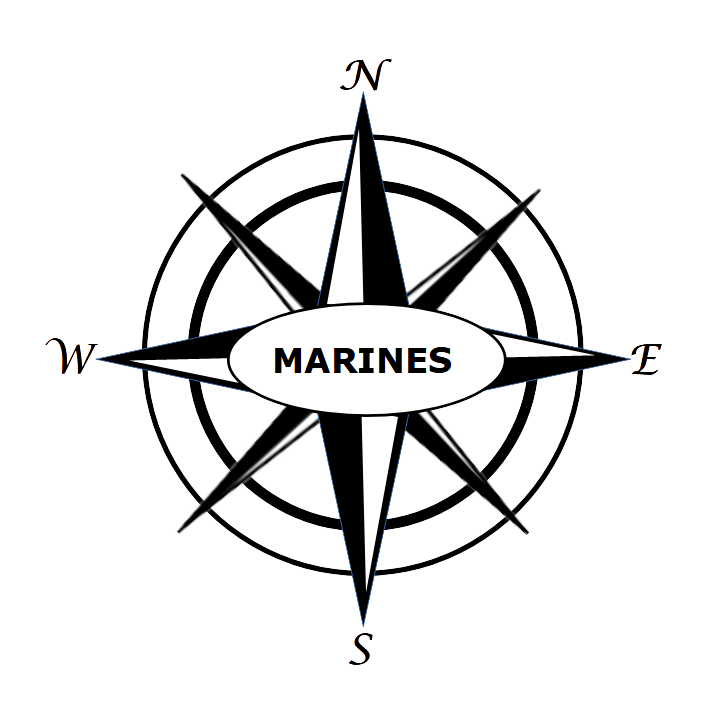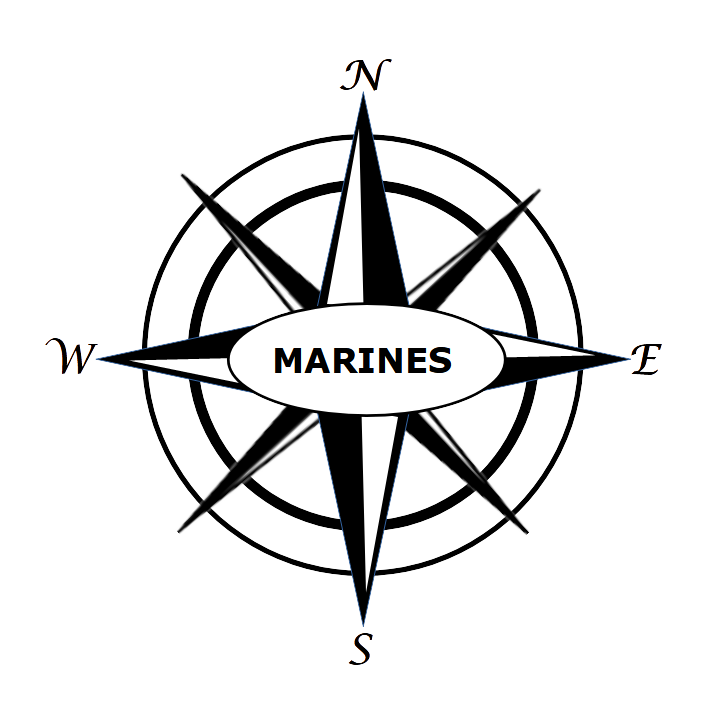Compass Points - Thinking Bigger
Award winning article by Col Seth Milstein
August 15, 2023
.
.
One of the things that makes Marines special is Marines are always chasing an ideal. Never satisfied, Marines strive to be more and to do more. The first step in being more and accomplishing more is to think bigger.
In his Chase Award winning article for the Marine Corps Gazette, "Thinking Bigger" Colonel Seth Milstein advocates a Marine Corps that thinks bigger to be better.
Colonel Milstein begins his article by warning of the limits of a narrow, regional approach to China.
- - - -
In focusing on a theater-specific scenario, the Marine Corps is accepting risk everywhere else and, worse, has missed a historic opportunity for revolutionary redesign to prepare for the realities of 21st-century warfare regardless of venue. To be sure, the challenges posed by the PRC go beyond military concerns in the Western Pacific. An upgraded 21st-century Marine Corps, a naval expeditionary force with offensive character, is a magnificent weapon for executing to what Sun Tzu ascribed supreme importance: attacking the enemy’s strategy.
- - - -
Colonel Milstein goes on to compare the Marine Corps' current island chain strategy to the failed German plan for World War I.
- - - -
Like a latter-day Schlieffen Plan, the answer is not committing to a single course of action that crams a significant fraction of the Marine Corps’ operating forces into the beaten zone of a massive amount of PRC firepower. Parking limited and relatively immobile combat power in isolated and predictable locations cedes the initiative and offers plenty of opportunity for enemy target practice. At the same time, retrenching from the rest of the globe offers a vacuum for the pacing threat and ambitious adversary to fill. Worst of all, this approach wastes a historic Marine Corps strength: excellence at expeditionary operations.
- - - -
What should be done to prepare for the future? Colonel Milstein suggests it begins with engagement.
- - - -
Before a future high-end fight begins, engagement is a key enabler. This means naval presence, comprised of visiting forces, a traditional naval mission pre-dating the United States. These may be Marine units, possibly aboard ships, but could be as small as single representatives, such as defense attaches. Joint exercises, bilateral training, capacity building, or even community relations activities help build confidence and demonstrate U.S. resolve. Friends are invaluable, regardless of the stage of competition. Friendship begins with mutual trust and respect, and trust cannot be surged. Building relationships takes time and contact, ideally between consistent interlocutors. Presence is an opportunity to introduce Marine units back onto deploying ships other than L-class amphibs. More importantly, embarked “micro-MAGTFs” give every Navy vessel more options for expeditionary littoral operations and rapid intervention. Compared to the loss of access and confidence that creates voids for the PRC and others to exploit, engagement is cheap.
- - - -
Colonel Milstein explains that should deterrence fail, it is a flexible, global force of Marines that would be in the best position to respond.
- - - -
Should deterrence fail and a conventional conflict begin, Marine forces, as a naval striking arm, are perfect for attacking the strategic resourcing web the PRC has woven. Destructive raids, seizure of key terrain, terminal guidance of effects, and working with partners—all can be used against PRC holdings or installations to deny resources or access needed to sustain hostilities. The ability to dominate littorals, from the land or seaward side, allows the Marine Corps to turn the anti-access area denial problem on its head for the PRC to solve. Embarked Marine forces can employ ambush tactics on PRC sea lanes of communication, forcing the PRC to defend its transportation network worldwide. While the PLA is developing expeditionary capabilities of its own, being ready to deal with mobile, combined-arms threats globally will demand time and additional expense. Rather than fighting in the PRC’s backyard, Marines can force them to play away games against the expeditionary pros.
- - - -
In his Chase Award winning article for the Marine Corps Gazette, "Thinking Bigger" Colonel Seth Milstein advocates a Marine Corps that thinks bigger to be better. Compass Points salutes both Colonel Milstein for his outstanding article and all those helping the Marine Corps to think bigger.
.
- - - - -
.
Marine Corps Gazette
2023 MajGen Harold W. Chase Prize Essay Contest: First Place
Thinking Bigger
Global and revolutionary over regional and evolutionary
By Colonel Seth Milstein
-- Col Milstein is transitioning from U.S. Navy Expeditionary Combat Command to Marine Corps Forces Europe and Africa. He is a MAGTF Officer with a background in tanks, intelligence, and psychological operations, a Middle East and North Africa Foreign Area Officer, and an inventor with several patents. He has deployed to Afghanistan, Iraq, East Timor, and various other places, served with 1(UK) Armoured Division, German Fleet Command, and commanded 6th ANGLICO.







"A better answer comes from asking what distinguishes a 21st-century force from a 20th-century one. Differences begin with the ability to disperse while employing vast capabilities across multiple domains." - from Col. Milstein's article. Notably, he focuses on 'dispersing relevant capabilities' as opposed to 'divesting relevant capabilities in order to facilitate dispersement'. It is a salient difference. Thank you to Compass Points, the MCA, and the MajGen Chase Essay Contest for bringing this essay to the forefront of discussion.
That explains it. I was Chief of Staff at MARFORRES in 2009...we had 4th ANGLICO,.back in the day.